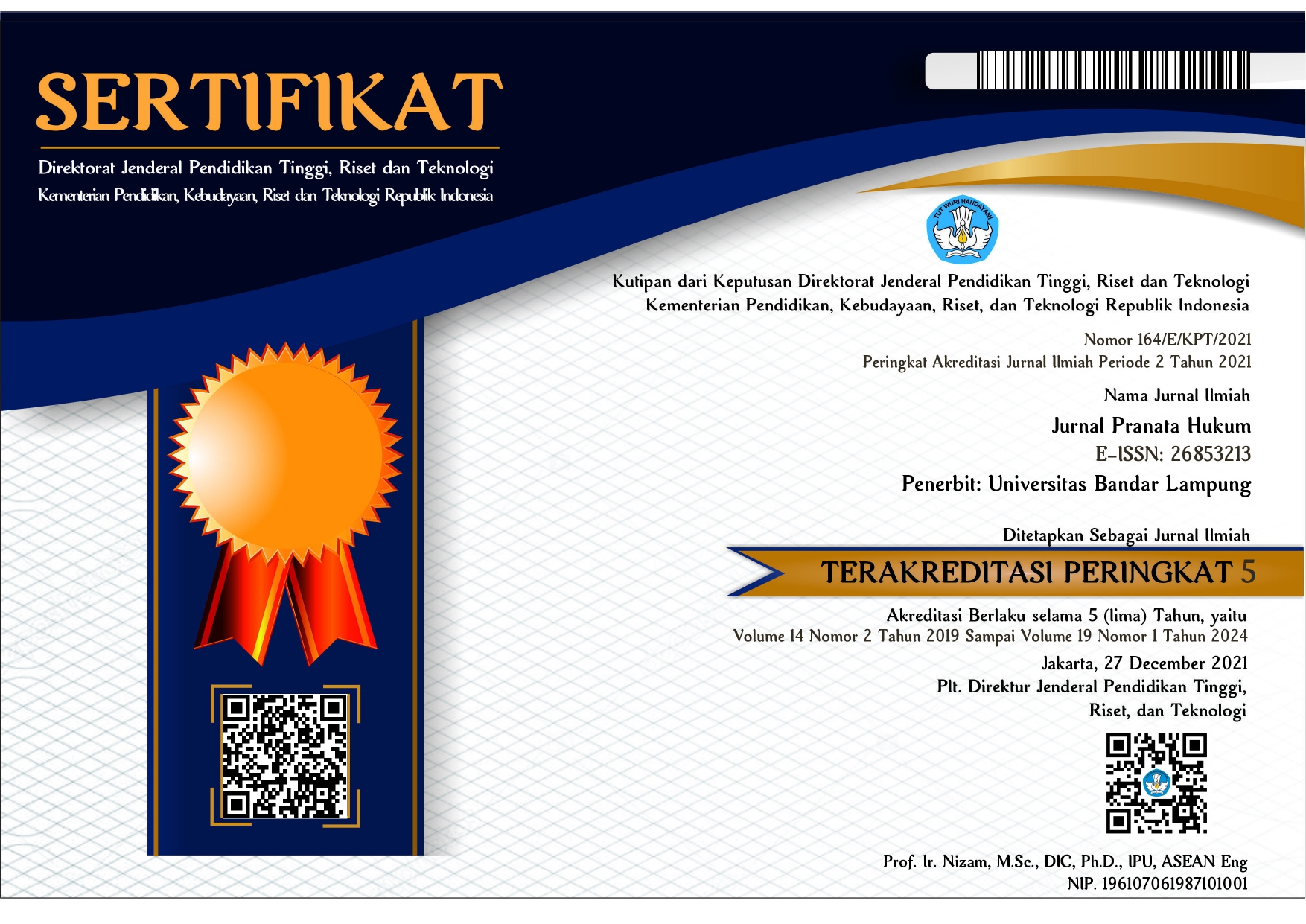TINJAUAN HUKUM ATAS PROSES PENYIDIKAN TERHADAP PELAKU TINDAK PIDANA YANG DIDUGA MENGALAMI GANGGUAN KEJIWAAN
DOI:
https://doi.org/10.36448/pranatahukum.v15i2.227Keywords:
Crime, Investigation, Psychiatric DisordersAbstract
Article 44 of the Penal Order stipulates that it is not punishable for anyone acting in a state of disficed or impaired soul due to a disease. Article 44 of the Criminal War clearly mentions one of the possible restrictions on a person's ability to account for his or her actions before the law. The research methods used in this study are normative approaches and empirical approaches. The data sources in this study consist of primary data and secondary data. The problem is, in the process of investigating the perpetrator of a crime suspected of having a psychiatric disorder and whether the legal consequences arising from the investigation of a criminal suspected of having a psychiatric disorder. The results of this study show that the investigation of suspected criminals with psychiatric disorders in accordance with sop investigations ranging from summons, arrest, detention, seizure, examination, requesting forensic expert information, shooting suspects and submiting case files to the court. As a result of the law that arises from the investigation of the perpetrator of the alleged criminal disorder based on the expert's description in this case forensic experts through psychological examination of the psychological condition of the perpetrator which from the results of Visum et Repertum Psychiatricum states that the suspect is in a healthy condition of his soul and continues the investigation process.
Downloads
Downloads
Published
Issue
Section
License
All articles published in the Pranata Journal are licensed under the Creative Commons Attribution-ShareAlike 4.0 International License (CC BY-SA 4.0). This license allows others to share, copy, distribute, adapt, and build upon the work, even for commercial purposes, as long as appropriate credit is given and derivative works are licensed under the same terms.





